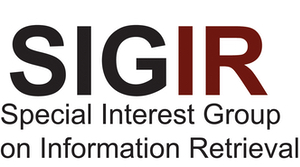Keynote Speakers
Christine Borgman

Christine Borgman is Distinguished Research Professor at UCLA and the author of more than 250 publications in communication, information studies, computer science, and law. Her three monographs from MIT Press have won the American Publishers Award for Professional and Scholarly Excellence (Big Data, Little Data, No Data: Scholarship in the Networked World, 2015) and Best Information Science Book of the Year award from the American Society for Information Science and Technology (From Gutenberg to the Global Information Infrastructure, 2001; Scholarship in the Networked World, 2008). At UCLA, she directs the Center for Knowledge Infrastructures with research grants from the Alfred P. Sloan Foundation, the National Science Foundation, and other sources. She has held visitor posts at Oxford, Harvard, Lund, DANS, Budapest Economic Sciences, and ELTE, and currently serves on boards for the Library of Congress, Electronic Privacy Information Center, and the Interuniversity Consortium for Political and Social Research. Professor Borgman is a Fellow of the American Association for the Advancement of Science and of the Association for Computing Machinery. Other honors and awards include the Award of Merit (2019) and the Research in Information Science Award (2011) from ASIST, Paul Evan Peters Award from the Coalition for Networked Information, Association for Research Libraries, and EDUCAUSE, and, and a Legacy Laureate of the University of Pittsburgh. She has keynoted conferences in the sciences, social sciences, computer and data science, medicine, law, and the humanities.
Keynote Title: Big Data, Little Data, or No Data? Why Human Interaction With Data Is a Hard Problem
Meredith Ringel Morris

Meredith Ringel Morris is a Sr. Principal Researcher and Research Manager at Microsoft Research; she is also an affiliate Professor at the University of Washington in the School of Computer Science and Engineering and in the Information School. Dr. Morris leads MSR’s Ability team, which conducts research in HCI and AI with the goal of developing innovative technologies that extend the capabilities of and enhance quality of life for people with disabilities. She is an internationally recognized expert in Human-Computer Interaction and has conducted foundational research in several areas including gesture design, social search, and accessibility. She has served as the general chair for ACM’s CSCW conference and has previously served as Technical Program Chair of the CHI, CSCW, ASSETS, and Interactive Tabletops & Surfaces conferences. Dr. Morris is a past member of the TOCHI editorial board and of the CSCW and CHI steering committees. She has been recognized as one of Technology Review’s “35 under 35” for her work on collaborative web search and was named an ACM Distinguished Scientist for her contributions to HCI research. She is the author of more than 100 peer-reviewed research articles, many of which have been recognized with best paper awards; her publications are available at http://aka.ms/merrie. Dr. Morris earned her Sc.B. in computer science from Brown University, and her M.S. and Ph.D. in computer science from Stanford University.
Keynote Title: Accessible Information Seeking
Keynote Abstract: The ability to find information online using a search engine is a key modern literacy skill. However, information seeking remains particularly challenging for many people with disabilities, a sizable population comprising over a billion people worldwide, including approximately 20% of adults in the U.S. In this talk, I will describe how various types of disability impact information seeking, including sensory disabilities such as vision impairment and cognitive differences such as dyslexia. I will present research at the intersection of human-computer interaction and information retrieval that aims to address the challenges that search engine use presents for these populations. These examples illustrate how considering the needs of end-users with disabilities can result in the creation of accessible search tools that benefit us all.









